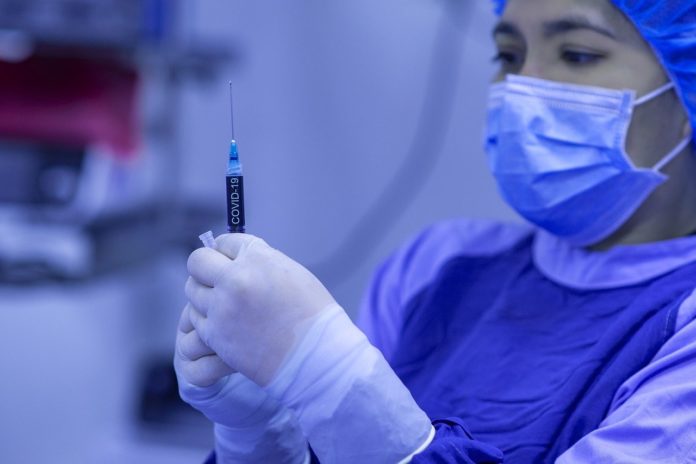There’s nothing “easy-going” about being a nurse; you have to be exceptionally flexible and able to go with the flow. After all, the only thing predictable about the job is its unpredictability.
Have you pondered the importance of advanced education and experience in nursing with that in consideration?
The answer to that question lies in the day-to-day care scenarios you face and the amount of knowledge you possess to solve every problem.
However, if you find yourself on the “always falling behind” and “failing to exceed expectations” side of the bed, then it is time you knew this:
Healthcare and medicine constantly evolve and enhance through advancements in knowledge and technology.
So, as a nurse, education and clinical experience are vital to providing adequate care and positive patient outcomes.
Things change, and considering the need to know about the change and the central idea behind the change can make a tremendous difference in how you practice.
The upper hand achieved by well-rounded, diverse clinical experiences and education is vital in shaping you as an always-ready nurse.
Moreover, nurses with higher knowledge are known to improve patients’ mortality rates and hospital reputations.
If the information above isn’t enough to elucidate the power of experience and education in nursing, let the following reasons be your guide:
1. Honing your skills
Nursing skills and techniques will be taught to you through coursework and labs, but putting them into practice will require working with actual patients in a natural healthcare setting.
Administering medication, taking vitals, feeding and bathing patients, and other duties may be assigned to you daily. Practicing these techniques and skills will prepare you for an unbeatable nursing career.
Also, clinical experience will introduce you to new practices that further conclude that there is more to nursing than just bedside care.
Since we’re on the topic of “new practices,” the profession of an adult gerontological nurse practitioner is becoming increasingly popular due to its unique needs.
So if you are into caring and treating adults from later adulthood to end-of-life, then an AGACNP master’s degree would be ideal to pursue a career as a gerontological nurse.
Lastly, by pursuing and obtaining additional degrees, you are fulfilling your role as a leader at your institution while also making a difference in the lives of others.
2. For transforming into a professional
While preceptors closely monitor the events that occur during clinical experiences, these experiences allow you to assist in patient care and case management to a greater extent than those that arise during nursing school.
You will be expected to bring patient histories, make case management recommendations, perform physical exams, and assist with other specialty-specific tasks.
As your experience expands, you will be more satisfied with your abilities and gain the confidence to carry out each task independently.
This will further equip you with the knowledge you need to become a professional in your field.
3. For clearing up nursing misconceptions
A widespread misunderstanding among nurses is that the best clinical experiences in nursing can only be found in well-known hospitals. That couldn’t be farther from the truth.
In fact, there are numerous variables at work in patient care, making it nearly impossible for students to have the same experiences everywhere.
A community hospital may have more varied patients or provide more in-depth training in a relatively small healthcare facility.
Another common nursing student misconception about clinical practice and education is that it can be approached in the same way as labs or online lecture-based learning. Again, wrong!
Your experience and knowledge will guide you through your responsibilities and teach you. Still, you must be proactive to get the most out of this experience.
Find out what you want to learn during clinical rotations. Ask your clinical instructor to teach you or link you with people who can answer your questions.
4. Adjusting with the rapidly growing healthcare environment
The healthcare environment was changing by the minute during the COVID-19 pandemic. Even in 2022, the pace of change isn’t slowing down, with new variants almost every six months.
Medical knowledge and technology advance daily. Nursing professionals must be aware of the change, and leaders must be involved in an organization’s planning or adoption of advanced care delivery models.
These changes include a care continuum ranging from episodic to lifelong care and system-based practice changes. These involvements can only be possible through advanced education and experience.
Furthermore, telehealth, phone triage, AI, remote monitoring, and home-based care will become increasingly crucial as technology advances.
5. For becoming a leader
In an era when technology has made acquiring nursing skills available in almost every geographic area, nearly all leadership positions necessitate advanced nursing degrees.
Nurses with exceptional degrees and skills can seek leadership roles and bridge the gap between practice and policy by ensuring that all team members obey protocols.
That will further help improve the reputation of a hospital’s nursing team and allow your nursing profession as a whole.
Furthermore, it can also improve your sense of well-being by assisting you in achieving better patient outcomes and helping you move forward in life.
6. Providing better patient care
With more experience and education, you may provide better patient care. You’ll also be better prepared to respond to a broader range of health needs.
You’ll be able to feel the positive effect you’re having on the lives of others if you provide better care.
Meanwhile, according to the ANA, there is growing recognition that nurses may be unable to provide efficient treatment for others if their well-being isn’t noticed.
With this in mind, many establishments are constructing infrastructure to support their nursing staff, whether through mindfulness or yoga rooms, informative messaging, or access to new education.
With education as one of your tools, you’ll have the private foundation required to care for others.
Conclusion
As evidenced from everything above, experience and higher education plays a pivotal role in nursing. The knowledge and skills you gain will leave you feeling confident and ready to take on almost anything in the nursing workforce.
So what are you waiting for? Allow yourself to grow, be up to date on the latest advances in treatment and care, and be the best. Just keep moving and learning.









